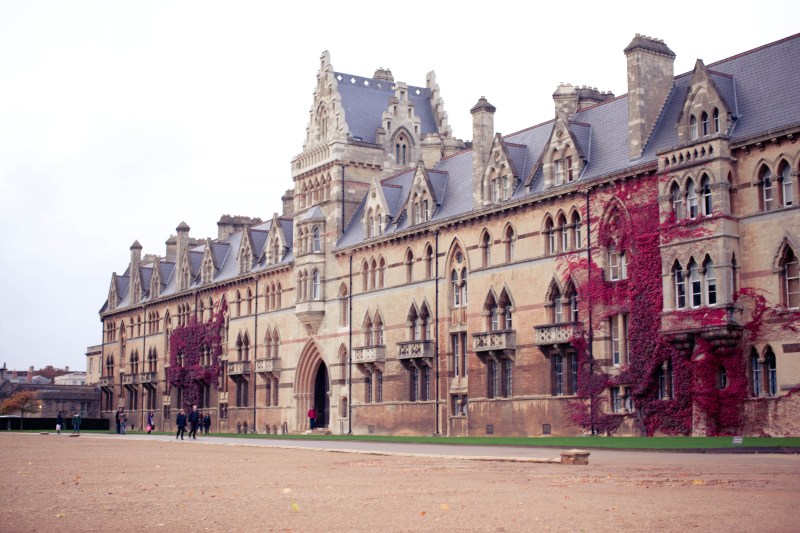With three recipients in 2014, the number of Rhodes Scholars from Stanford has reached a total of 112. John Pearson, director of the Bechtel International Center, which supports students throughout the application process, attributed this success to the University’s caliber of students. He also explained that the University has focused more on the award in the last 30 to 40 years, as the scholarship has become more widely recognized.

“In the last 10 or 11 years when we have done well, we did get some extra support: resources from the University in this office to help us do better at outreach and advising,” Pearson said.
Bechtel has been the main office for the scholarship since the mid-’70s, according to Pearson, and every year, between 20 and 30 students usually apply to be endorsed by Stanford. In the scholarship’s history, 93 of Stanford’s winners were American Rhodes Scholars while an additional nine were international applicants.
The University sponsorship application is a combined process with the Marshall Scholarship so students can apply to be sponsored for one of the two awards or for both using the same application. The process requires the submission of an activities list, three references, a transcript and 1000-word statement of purpose specific to the Rhodes.
After submitting their materials, students are interviewed by a Rhodes-Marshall panel of faculty, alumni, graduate students and even local Rhodes and Marshall Scholars from outside the University — all of whom have experience in higher education in the United Kingdom. While some applicants may be told to wait a year or to consider a different scholarship instead, most end up getting sponsored.
The panel looks for the qualities of a Rhodes Scholar in applicants, as specified in Cecil Rhodes’s will. However, Pearson clarified one of the most common questions he receives about the award regarding athletics.
“Cecil Rhodes in his will said he wanted applicants with a fondness and success in, and I quote, ‘manly sports.’ Forget all that,” Pearson said. “It’s now this aspect of physical vigor: Does the applicant show that they have the energy to do a number of things well? One way you can show that is by athletics, but it’s not the only way.”
Bechtel provides constant support and guidance to applicants through mock interviews, one-on-one workshops and general advising. Pearson explained that Bechtel’s Overseas Resource Center (ORC) also pairs students with previous Rhodes Scholars for mentorship throughout the entire process: from considering applying to preparing for the final interview.
“By matching students with alums who have been through this themselves, it just gives them a sense that [winning the scholarship] is doable, that you can prepare for it and that there is an opportunity waiting for you,” Pearson said.
As a previous Rhodes Scholarship recipient, Professor Emeritus of Medicine and Academic Secretary to the University Rex Jamison, who chairs Stanford’s Rhodes-Marshall panel, described his experience advising applicants.
“You try to give them a sense of what the interview will be like, which is generally pretty rigorous,” Jamison said. “The committee is trying to determine how well the candidate understands the subject [in which] he or she is interested and generally what other interests they have.”
Rhodes Scholar Fatima Sabar ’11 explained that the advising she received during her application process made the scholarship seem more accessible. As a result, she now volunteers to mentor applicants.
“The help that I got was so invaluable, so I make it a point to tell John and Diane [at the ORC] to connect me with anyone I could be helpful to in the process,” Sabar said.
One of the applicants Sabar mentored was Margaret Hayden ’13, a 2013 Rhodes Scholar. Both Sabar and Hayden explained that Stanford’s opportunities to develop close relationships with faculty and advisors helped make the application process easier. They also described the transition between the two universities.
“They’re very different institutions,” Hayden said. “The best way I’ve found of putting it is that at Stanford we’re more or less encouraged to swim in the fountains and at Oxford you’re not allowed to walk on the grass.”
Rhodes Scholar Rachel Kolb ’12 M.A. ’13 also took time to adjust to the new structure and traditions at Oxford, yet she and the others said the friendships they have formed there were just as valuable as those at Stanford.
“I’ve enjoyed the incredibly diverse community of fellow graduate students at Oxford, which feels similarly diverse to the community at Stanford but is even more international,” Kolb said. “Just as at Stanford, the absolute best part about Oxford is the people I’m meeting during my time there.”
Overall, all three emphasized that the Rhodes Scholarship has helped them think about their futures and that winning the award is something anyone can do.
“In the future, I see myself becoming a writer and perhaps an academic who engages with issues of disability access,” Kolb said. “Some of that is still in the air, though, and for now I’m enjoying the experience, trying to learn as much as I can and leaving doors open for opportunity.”
Sabar explained that Pearson and Diane Murk, manager at the ORC, encourage applicants to see the scholarship as just another post-graduation option for seniors.
“To be perfectly honest, when I decided to apply, I wasn’t sure really what I wanted to do after senior year,” Sabar said. “I decided to apply because I wanted to consider a variety of options after senior year, including research, graduate school fellowships or industry work.”
Hayden explained that the only reason she applied was that she knew a previous Rhodes Scholar who shared her interests. Knowing that she wants “to be more than a doctor who sees patients,” she saw the scholarship as an opportunity to experience academic research before going to medical school.
“I sort of applied on the whim of ‘let’s see what happens’…and somehow now I’m here at Oxford,” Hayden said. “I feel like I’m a normal person who got lucky.”
Contact Kylie Jue at kyliej ‘at’ stanford.edu.
